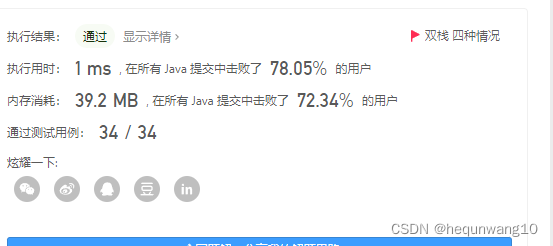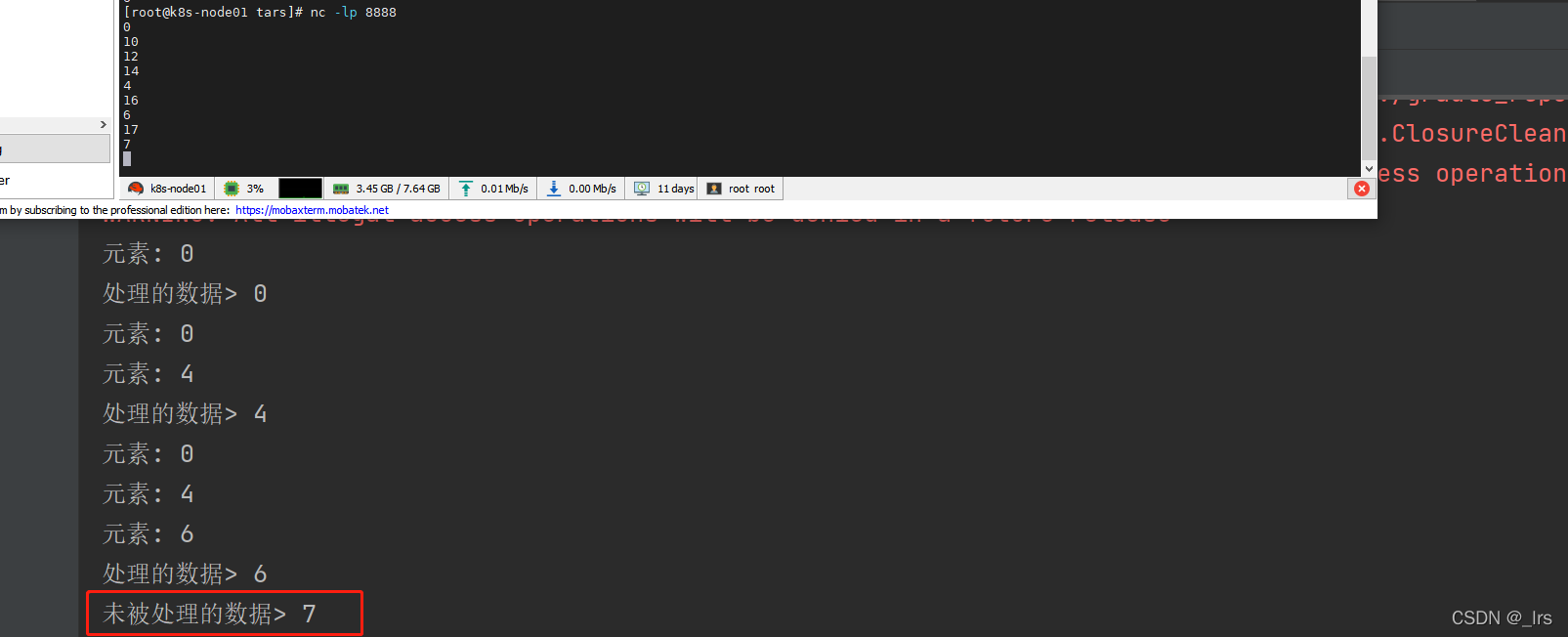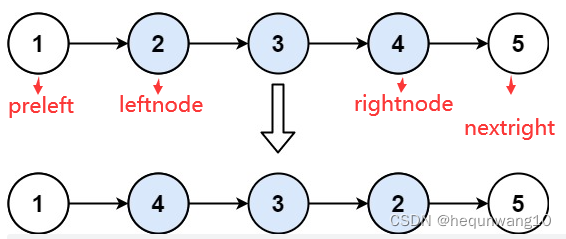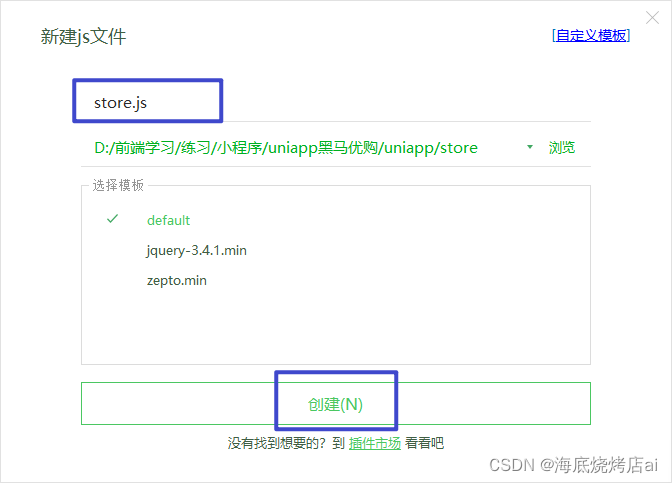当前位置:网站首页>394. String decoding - auxiliary stack
394. String decoding - auxiliary stack
2022-04-23 17:32:00 【hequnwang10】
One 、 Title Description
Given an encoded string , Returns the decoded string .
The coding rule is : k[encoded_string], Represents the encoded_string Just repeat k Time . Be careful k Positive integer guaranteed .
You can think that the input string is always valid ; There are no extra spaces in the input string , And the square brackets entered always meet the format requirements .
Besides , You can assume that the raw data does not contain numbers , All numbers only indicate the number of repetitions k , For example, there is no such thing as 3a or 2[4] The input of .
Example 1:
Input :s = "3[a]2[bc]"
Output :"aaabcbc"
Example 2:
Input :s = "3[a2[c]]"
Output :"accaccacc"
Example 3:
Input :s = "2[abc]3[cd]ef"
Output :"abcabccdcdcdef"
Example 4:
Input :s = "abc3[cd]xyz"
Output :"abccdcdcdxyz"
Two 、 Problem solving
Auxiliary stack
Push the characters in the string onto the stack , If it's not the right bracket , Then press the characters on the stack , If you encounter the right bracket , Out of the stack , preservation [ ] Characters in parentheses , If you continue to stack, it is a number , Then save the number N, And then [ ] Copy N Time , Keep pressing the stack . Finally, the elements in the stack can be removed from the stack .
class Solution {
public String decodeString(String s) {
Stack<Character> stack = new Stack<>();
for(char ch : s.toCharArray()){
if(ch != ']'){
// If it's not the right bracket Just into the stack
stack.push(ch);
}else{
// If you encounter the left bracket Out of the stack
// Remove [ ] String in
StringBuilder sb = new StringBuilder();
// Judge whether the stack is empty also Whether the elements of the stack are characters
while(!stack.isEmpty() && Character.isLetter(stack.peek())){
sb.append(stack.pop());
}
// Flip the string
String substr = sb.reverse().toString();
// Left parenthesis encountered , Then directly put the left bracket out of the stack
stack.pop();
// Determine whether the string in the stack is a number
sb = new StringBuilder();
while(!stack.isEmpty() && Character.isDigit(stack.peek())){
// If it's a number
sb.append(stack.pop());
}
int cnt = Integer.valueOf(sb.reverse().toString());
for(int i = 0;i<cnt;i++){
// Concatenate strings cnt Then press the stack
for(char subch : substr.toCharArray()){
stack.push(subch);
}
}
}
}
// Remove the elements from the stack
StringBuilder res = new StringBuilder();
while(!stack.isEmpty()){
res.append(stack.pop());
}
return res.reverse().toString();
}
}

You can optimize , Use dual stack
class Solution {
public String decodeString(String s) {
StringBuilder sb = new StringBuilder();
// Save string
Stack<StringBuilder> strstack = new Stack<>();
// Save the numbers
Stack<Integer> numstack = new Stack<>();
int sum = 0;
for(char ch : s.toCharArray()){
// Four situations 1、 If it's a number 2、 If it is a normal string 3、 If it's left parenthesis 4、 If it's right bracket
//1、 If it's a number
if(Character.isDigit(ch)){
sum = sum * 10 + ch - '0';
}else if(Character.isLetter(ch)){
//2、 If it is a normal string
sb.append(ch);
}else if(ch == '['){
//3、 If it's left parenthesis
strstack.push(sb);
numstack.push(sum);
// to update
sb = new StringBuilder();
sum = 0;
}else{
//4、 If it's right bracket
StringBuilder prestr = strstack.pop();
int cnt = numstack.pop();
for(int i = 0;i<cnt;i++){
prestr.append(sb);
}
sb = prestr;
}
}
return sb.toString();
}
}

other :
class Solution {
public String decodeString(String s) {
// When you see the need for bracket matching, you should think of the stack
StringBuilder res=new StringBuilder();
int num=0;
// With the help of two stacks Use the bucket stack to simulate it
LinkedList<String> character=new LinkedList<>();
LinkedList<Integer> count=new LinkedList<>();
for (char c:s.toCharArray()){
// There are only four possibilities
if (c=='['){
count.addLast(num);
character.addLast(res.toString());
// Empty, because I'll use it next time
num=0;
res=new StringBuilder();
}
else if (c==']'){
StringBuilder temp=new StringBuilder();
int num1=count.removeLast();
for (int i = 0; i < num1; i++) {
temp.append(res.toString());
}
res=new StringBuilder(character.removeLast()+temp);
}
else if(c<='9'&&c>='0'){
num = num * 10 + c-'0';
}else{
res.append(c);
}
}
return res.toString();
}
}
版权声明
本文为[hequnwang10]所创,转载请带上原文链接,感谢
https://yzsam.com/2022/04/202204231732009426.html
边栏推荐
- ASP. Net core configuration options (Part 2)
- 開期貨,開戶雲安全還是相信期貨公司的軟件?
- El cascade and El select click elsewhere to make the drop-down box disappear
- Allowed latency and side output
- 嵌入式系统中,FLASH中的程序代码必须搬到RAM中运行吗?
- Manually implement call, apply and bind functions
- JVM类加载机制
- El date picker limits the selection range from the current time to two months ago
- Use of Shell sort command
- Using quartz under. Net core -- general properties and priority of triggers for [5] jobs and triggers
猜你喜欢

. net type transfer

Future 用法详解

Signalr can actively send data from the server to the client

SiteServer CMS5. 0 Usage Summary

Allowed latency and side output

Devexpress GridView add select all columns

92. 反转链表 II-字节跳动高频题
![Using quartz under. Net core -- general properties and priority of triggers for [5] jobs and triggers](/img/65/89473397da4217201eeee85aef3c10.png)
Using quartz under. Net core -- general properties and priority of triggers for [5] jobs and triggers

Learning record of uni app dark horse yougou project (Part 2)
![[logical fallacy in life] Scarecrow fallacy and inability to refute are not proof](/img/71/14a17128dbe0f02edb4db3da479ef2.jpg)
[logical fallacy in life] Scarecrow fallacy and inability to refute are not proof
随机推荐
In ancient Egypt and Greece, what base system was used in mathematics
Using quartz under. Net core - [1] quick start
剑指 Offer 03. 数组中重复的数字
Input file upload
Come out after a thousand calls
matlab如何绘制已知公式的曲线图,Excel怎么绘制函数曲线图像?
ASP. Net core reads the configuration file in the class library project
209. 长度最小的子数组-滑动窗口
flink 学习(十二)Allowed Lateness和 Side Output
C语言函数详解
Indexes and views in MySQL
How to use the input table one-way service to send (occupy less) picture files (body transmission)? FileReader built-in object involved
线性代数感悟之2
Allowed latency and side output
ASP. Net core configuration options (Part 2)
剑指 Offer 22. 链表中倒数第k个节点-快慢指针
[二叉数] 二叉树的最大深度+N叉树的最大深度
Further optimize Baidu map data visualization
Manually implement call, apply and bind functions
ECMAScript history